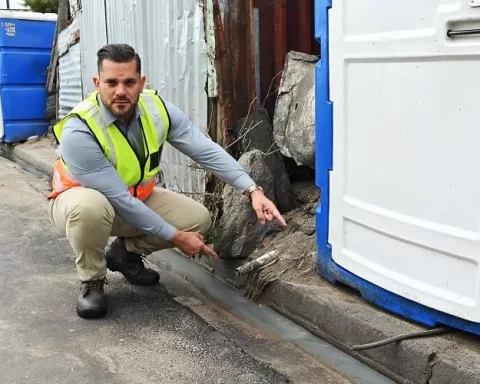The City’s Urban Mobility Directorate has received Council approval to enter into long-term contracts for approximately 10,400 km of roads under the City’s jurisdiction. The contracts cover seven financial years, enabling seamless and ongoing maintenance and rehabilitation of roads.
Importance of Consistent Road Maintenance
Extreme weather events, such as torrential rains, have highlighted the vulnerability of infrastructure. Blocked stormwater systems, exacerbated by illegal dumping, led to several instances of road flooding. The continuous rainfall created pressure on the Road Infrastructure Management (RIM) teams who cleared blockages and stormwater inlets.
Council Approval for Long-Term Contracts
The City’s Mayoral Committee Member for Urban Mobility expressed delight at the Council’s approval, which allows RIM to engage in planned routine road maintenance without interruptions or delays until 30 June 2030. Councillor Quintas emphasized the importance of road networks in facilitating the mobility of people, goods, and services, and their contribution to economic growth and job creation.
Inefficiency of Short-Term Contracts for Larger Projects
While the existing framework contract for professional services suffices for smaller projects, it becomes problematic for extensive rehabilitation, reconstruction, and upgrade efforts. The investigation and design stages alone can take up to 24 months, followed by a 12-month procurement process. The construction stage can last between 12 and 24 months, depending on the project’s size, resulting in a total life cycle of three to five years.
Importance of Engaging a Consistent Team of Specialists
A three-financial-year contract period proves inefficient and carries inherent continuity risks. Transitioning project leadership during procurement or execution could lead to costly delays and contractual claims if a replacement service provider is not secured before the existing contract expires. To mitigate these challenges, Councillor Quintas emphasized the importance of engaging a consistent team of specialist civil engineering professionals with contract periods not exceeding seven financial years.
Significance of Long-Term Contracts
The Council’s approval of these long-term contracts is a significant step forward in ensuring uninterrupted road maintenance and rehabilitation for the City. A proactive approach will contribute to a more robust and reliable urban mobility network and save the City from incurring unnecessary expenses. With a dedicated team of specialists and a clear, long-term plan in place, the City’s road infrastructure is set for a future of sustained maintenance and growth.











